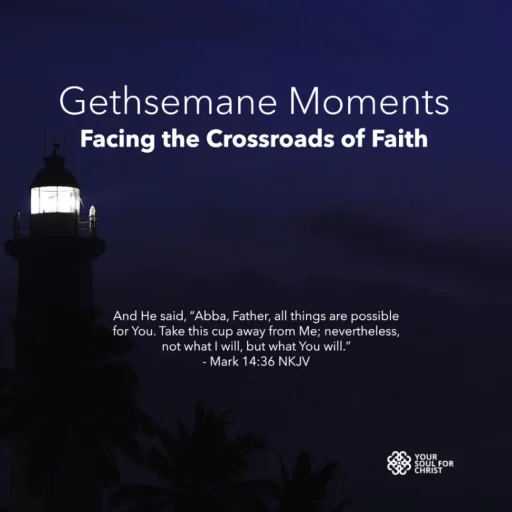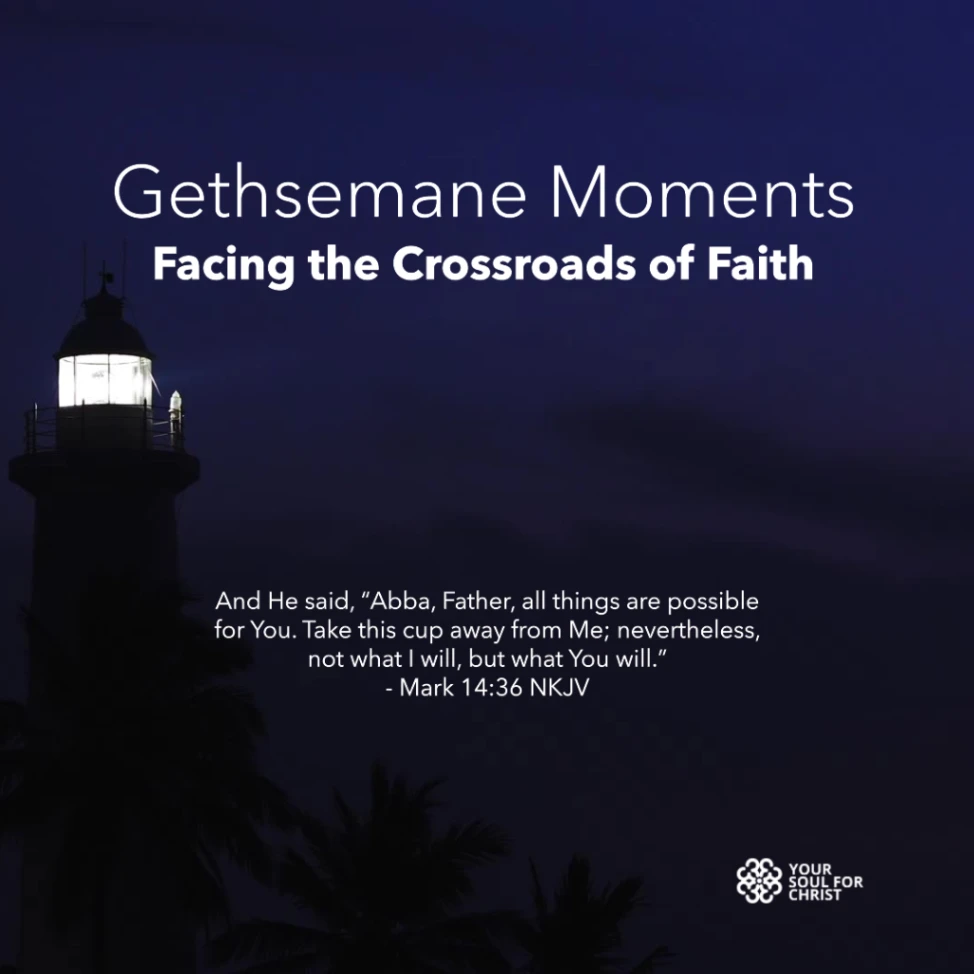And He said, “Abba, Father, all things are possible for You. Take this cup away from Me; nevertheless, not what I will, but what You will.”
Mark 14:36 NKJV
We have established that, in our Christian Walk, Gethsemane moments are inevitable. These are seasons of deep struggle where our will conflicts with God’s will, bringing tension, sorrow, and ultimately, surrender. In the first part of this series, we explored how Jesus faced His Gethsemane and what we can learn from it. Today, we continue by examining some experiences that accompany our own Gethsemane moments.
Gethsemane is a place of solitude. It is a season where you may feel alone, even when surrounded by loved ones. When Jesus agonised in the garden, His three closest disciples—Peter, James, and John—were present but unable to stay awake for Him. There were no prayers from them, no words of encouragement, and no expressions of concern.
When Jesus found them sleeping, He said, “The spirit indeed is willing, but the flesh is weak.” (Mark 14:38). He knew they cared, yet they could not express their support due to their own limitations. Similarly, in your Gethsemane, those closest to you may seem distant—not because they do not love you but because they may not understand or know how to support you. Even when you feel alone, you are never truly alone.
In addition, Gethsemane is a place where God’s compassion becomes evident. Though He may not remove the trial, He will strengthen you through it. In Luke’s account, after Jesus prayed, an angel appeared from heaven to strengthen Him (Luke 22:41-43). This moment reminds us that God never abandons His children in their suffering.
God’s compassion may come in the form of supernatural help, or He may send a person to encourage and uplift you. Whether through divine intervention or human support, God ensures that you are never left to bear your burden alone.
Furthermore, betrayal is one of the deepest wounds of a Gethsemane season. When Jesus returned from prayer, what did he tell the disciples? “Behold, the Son of Man is being betrayed into the hands of sinners.” (Mark 14:41). His own disciple, Judas, had turned against Him.
Betrayal may come in different forms—deception, disloyalty, or abandonment. It is painful and costly. Yet, God does not waste betrayal. Just as Judas’ betrayal played a role in God’s redemption plan, God can use even the most painful betrayals in your life to accomplish His greater purpose.
In conclusion, Gethsemane is not just a place of struggle; it is a place of decision. Jesus wrestled with the suffering ahead, yet He ultimately surrendered. “Not My will, but Yours, be done.” (Luke 22:42). In that moment, He had a resolution. He rose from prayer, ready to face His betrayer and fulfil His mission.
In your Gethsemane, there comes a point where you must make a decision. Will you resist God’s will, or will you surrender and trust Him completely? When you resolve to obey, strength follows, and God equips you to walk in His will.
Gethsemane moments are not easy. They involve denial, loneliness, suffering, and surrender. Yet, they are also places of divine strengthening, compassion, and unwavering resolve. Jesus endured His Gethsemane, and because of Him, we can endure ours too. When you find yourself in that place of wrestling, take heart—God is with you, He sees you, and His will is always for your good.
Let your prayer echo that of Jesus. “Not My will, but Yours, be done.”

